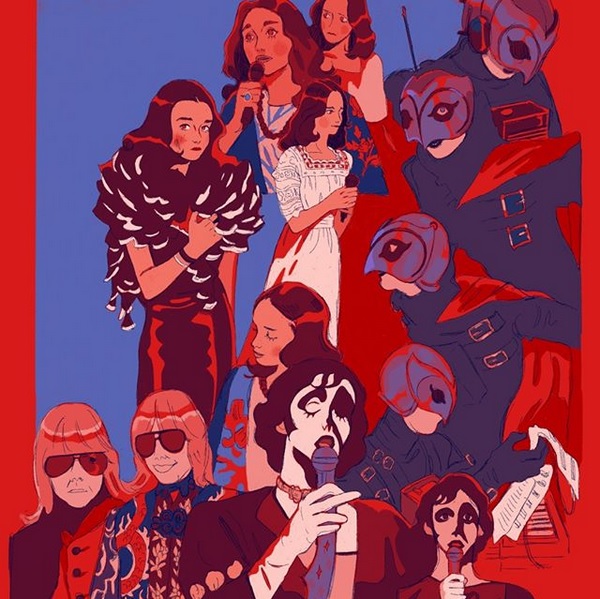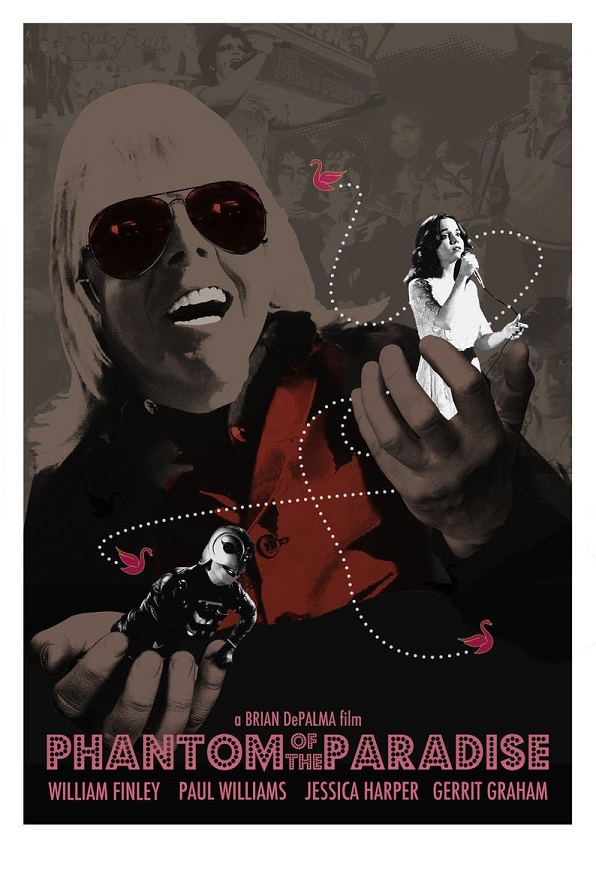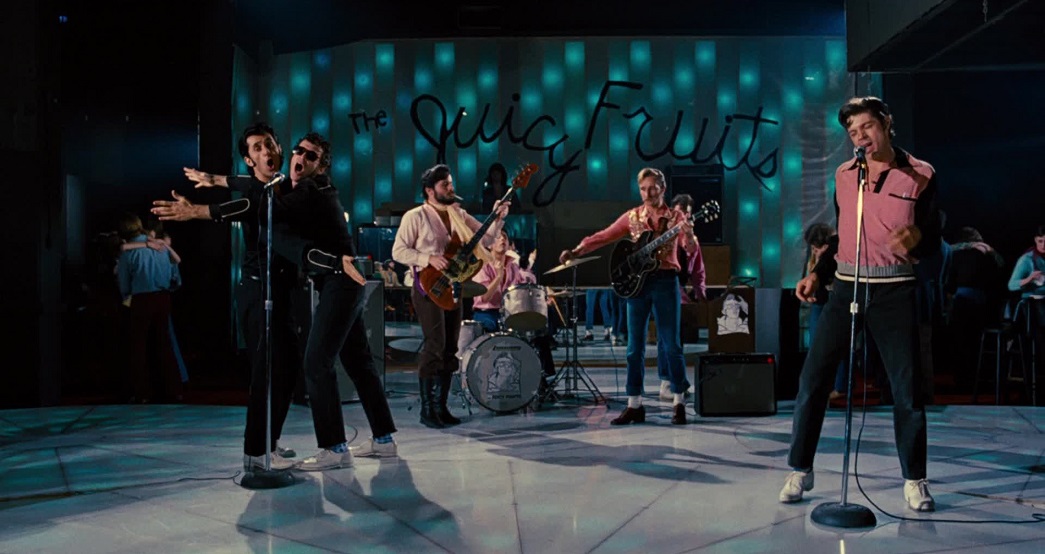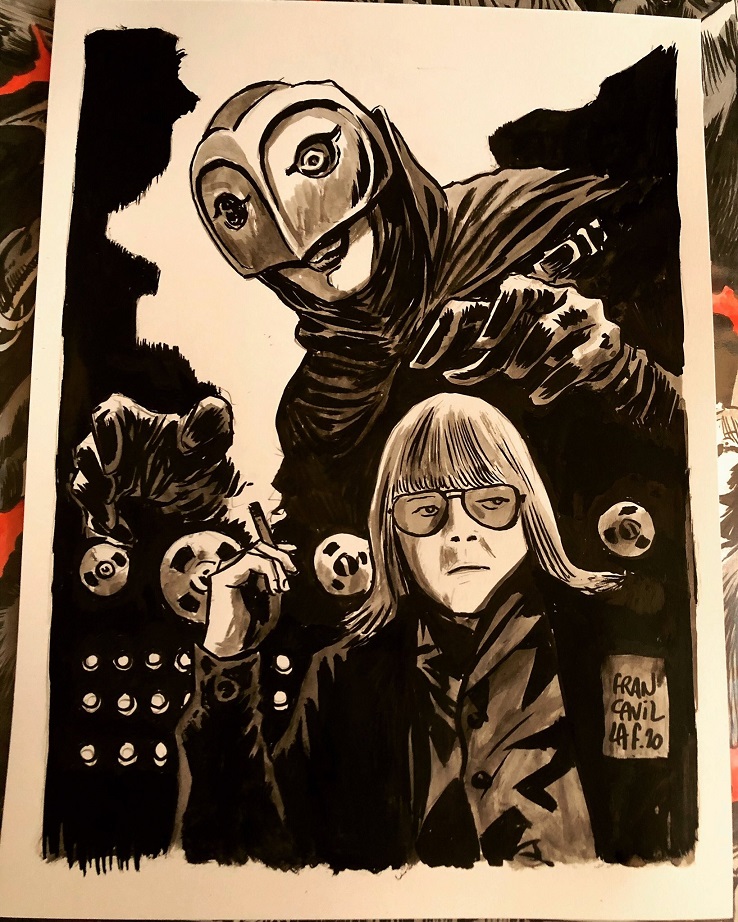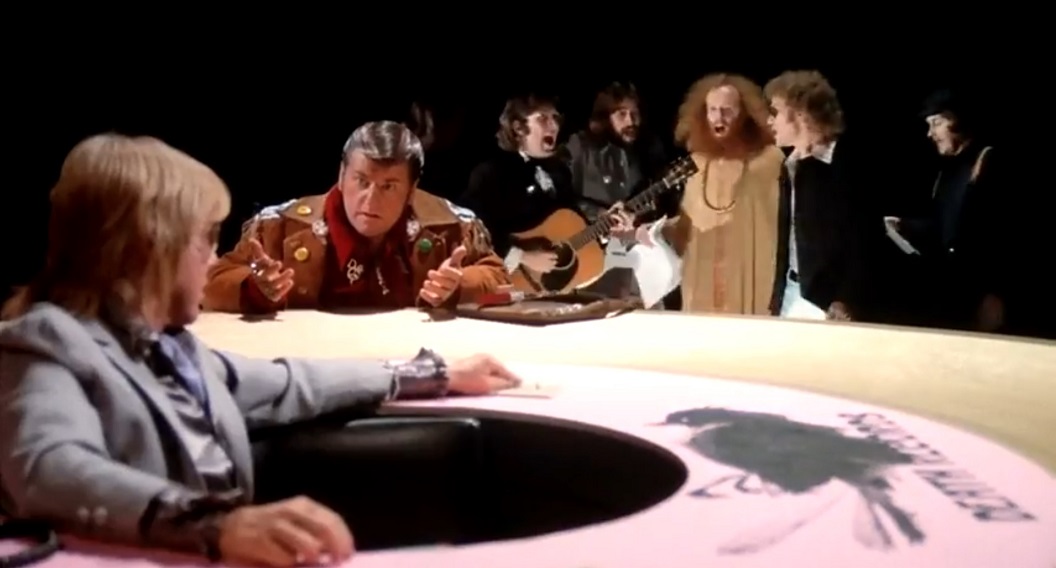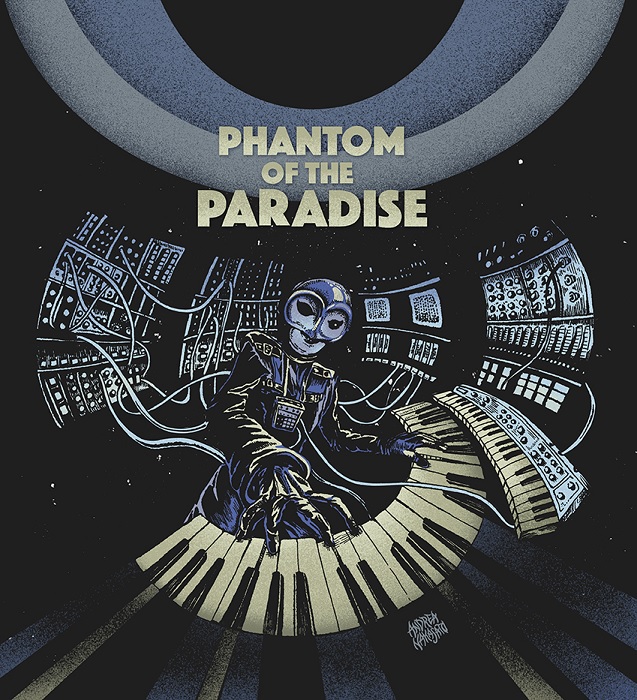POSTER FOR SECOND MARKETING CAMPAIGN WAS BASED ON A SKETCH BY NEAL ADAMS
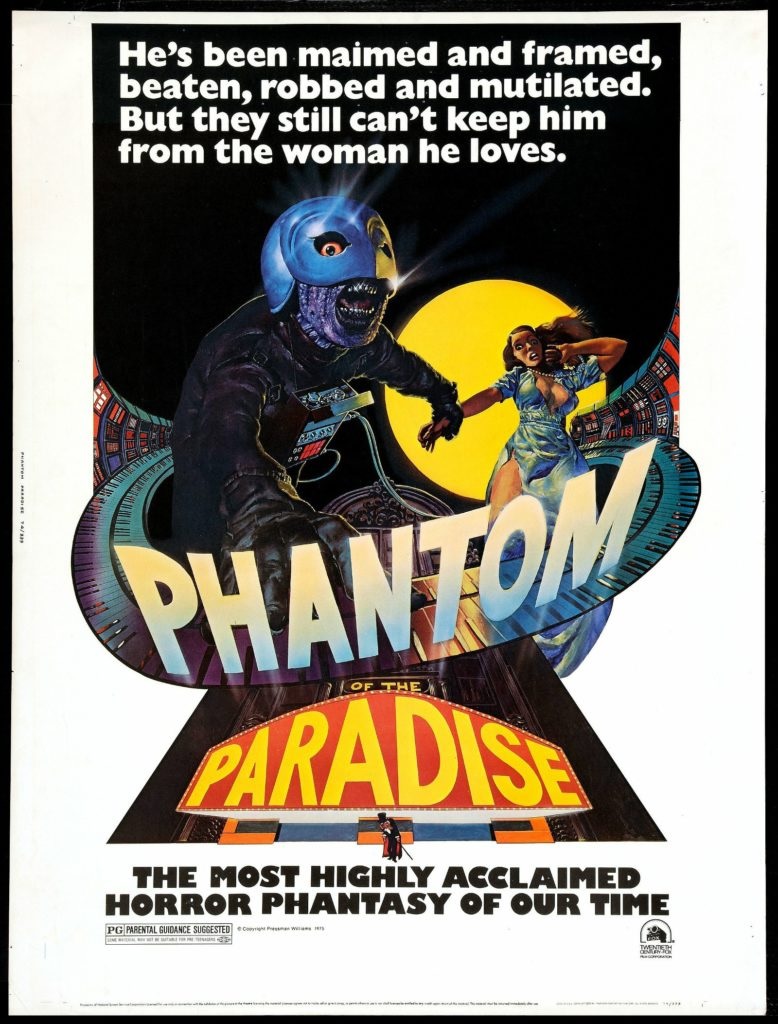
Richard Corben, the artist who illustrated the fantastic pulpy poster for Brian De Palma's Phantom Of The Paradise, "died December 2, 2020 following heart surgery," according to a post by Corben's wife, Dona, this morning on the Corben Studios Facebook page. After the initial release of Phantom Of The Paradise did not gain traction in most markets, Corben was commissioned by Ed Pressman to create a poster for a revised marketing campaign. With the wonderful Swan Archives currently on hold, we thankfully have a terrific summary, with quotes from the Swan Archives' Ari Kahan, via Eddie Shannon's Film on Paper:
The brilliant fan site The Swan Archives, curated by Ari Kahan, features a thorough history of the promotion of the film and shows the initial two styles of poster, one of which was designed by Anthony Goldschmidt and illustrated by the late John Alvin and also featured on the album cover. As Kahan notes:‘The involvement of A&M records (which issued the soundtrack, and which more or less owned the exclusive rights to Paul Williams’ life at the time) in the co-marketing campaign with 20th Century Fox meant that the film was initially pitched towards what A&M and Fox believed to be the teens-through-college “rock music demographic.” John Alvin’s beautiful painted graphics on the posters and soundtrack album emphasised guitars, keyboards, microphones, patch cords, and other musical ephemera, and a photorealistic depiction of songwriter/star Paul Williams, signalling the studio’s intention to rely heavily on Williams’ existing fame in its promotion of the film.’
The rest of the ill-conceived initial campaign is detailed on the Swan Archives page linked to above. After a disastrous few months at the box office, the film’s producer Ed Pressman convinced the studio to allow him to reposition the film with a revised marketing campaign. Kahan explains:
‘Pressman went into action by launching a second campaign, in mid-1975, which tagged the film as “The Most Highly Acclaimed Horror Phantasy of Our Time,” pushing the horror angle and perennial plot line, and downplaying the music. De Palma, Finley, and Graham were made extremely available to give interviews to Castle of Frankenstein, Monster World, and every other horror magazine that would make time for them’
As part of this second campaign Pressman commissioned noted comic book artist Richard Corben to illustrate a new poster image and fellow comic book artist Neal Adams provided an initial concept sketch from which Corben worked (according to Kahan, ‘Adams drew the sketch for free, to aid Pressman in pitching a never-realised Phantom of the Paradise companion comic book, which he hoped might result in some paying work’) . The new painting emphasised the horror aspect and the Phantom’s mangled face and completely downplayed Williams’ presence – you can just spot him at the bottom of the marquee (see the close-up image). The new campaign proved to be more successful but as Kahan notes:
‘The film gradually took on life, bringing in decent (though never great) box office and some positive reviews. As De Palma put it, “When we revised the campaign in the U.S and made it seem more like The Phantom of the Opera than a horror/rock film, we got an entirely different response.”‘
For more on the film’s promotional travails, I again urge you to check out the excellent Swan Archives site. Corben also painted the style B one sheet for the Heavy Metal film, the magazine of which he’d been involved with for several years.
Updated: Thursday, December 10, 2020 8:42 PM CST
Post Comment | View Comments (2) | Permalink | Share This Post




